Songkran: The joyful water festival of Thailand
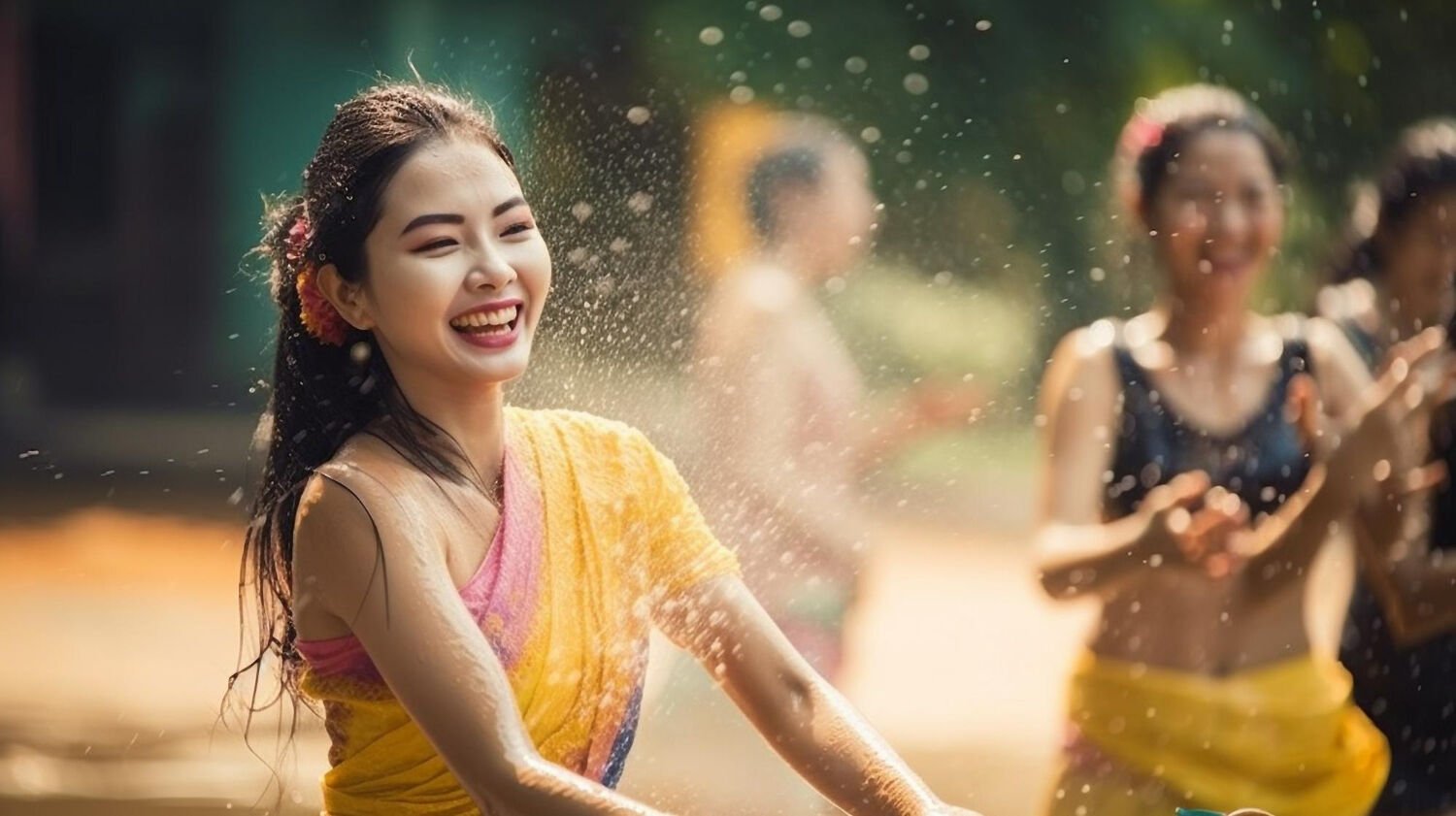
As the hot sun beats down on the streets of Thailand in April, many are gearing up for one of the most exciting festivals of the year – Songkran. This annual celebration marks the traditional Thai New Year, and it’s a time for cleansing, renewal, and lots of water fun!
Water as a celebration of renewal
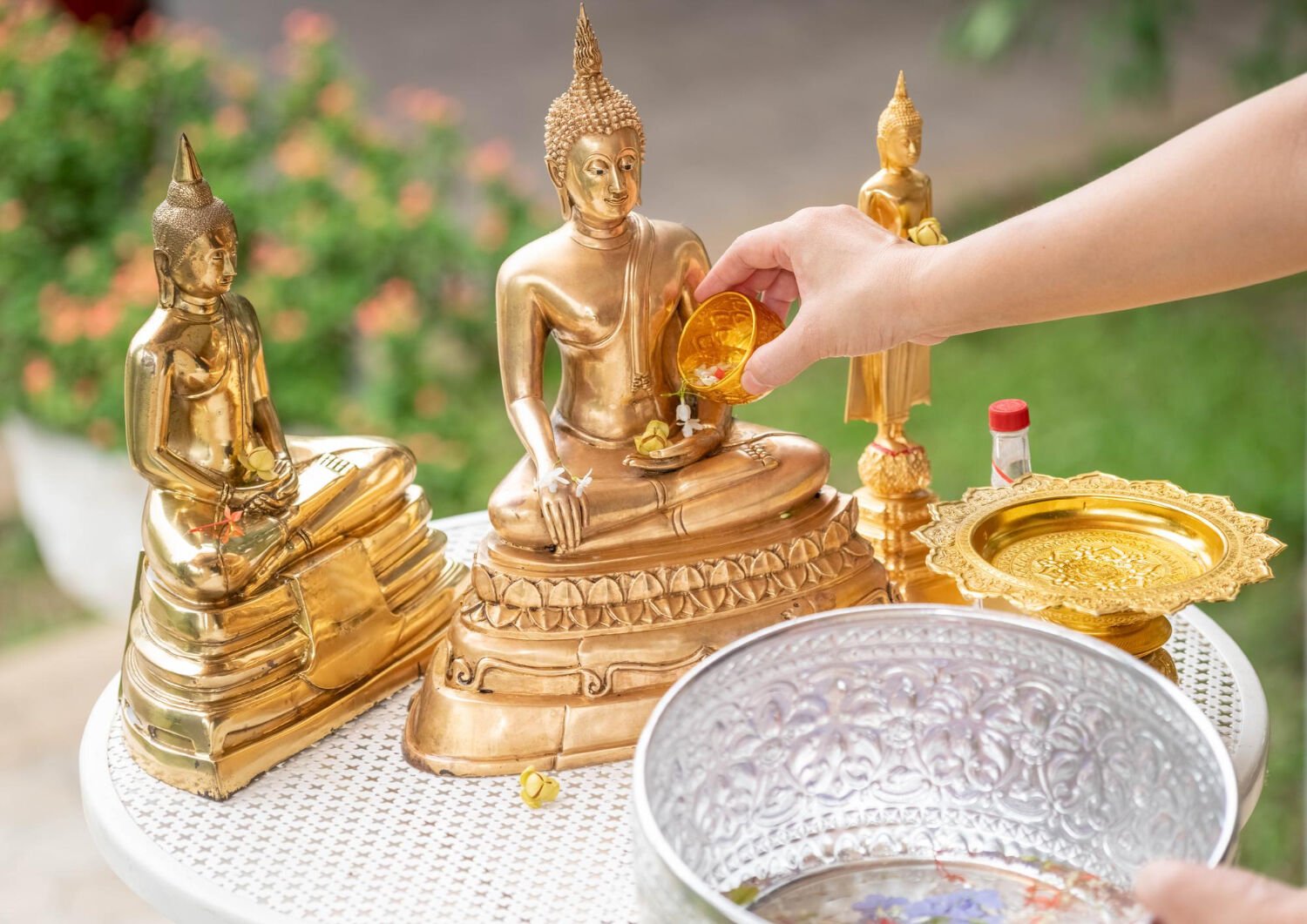
Songkran is a three-day festival that takes place from April 13 to 15, but the festivities often continue for a week or more in some areas. During the festival, people use water guns, buckets, and hoses to soak anyone in sight.
The water play is not just for fun, though. It’s a symbolic cleansing ritual meant to wash away the old and welcome the new year with a fresh start. In fact, the word Songkran comes from a phrase in the Sanskrit language meaning passage of the sun.
Traditionally, people prepare for Songkran by cleaning their houses, schools, offices, and public spaces with great care. This is done to ensure that everything is spick and span for a new beginning. Moreover, family members who have been away are returning to celebrate the holiday together, spending quality time with loved ones and sharing in the joy of the festivities.
At the crack of dawn, many families make their way to the local Buddhist temple to offer food and listen to the wise words of the monks as they preach. As they pay their respects, visitors sprinkle clean or scented water over the statues of Buddha, symbolising purification and good fortune. Younger generations also pour water into the hands of their elders to show gratitude and seek blessings for the upcoming year.
But it’s not just water that’s used for the celebrations, sand also plays an important role. Visitors bring sand to the temple to build sand shrines, meant to replenish the sand that has been carried away on shoes throughout the year.
People carefully place the sand in stupas or mounds on the ground, adorned with colourful flags and flowers, adding to the beauty and festivities of the occasion.
The fun and festivities of Songkran
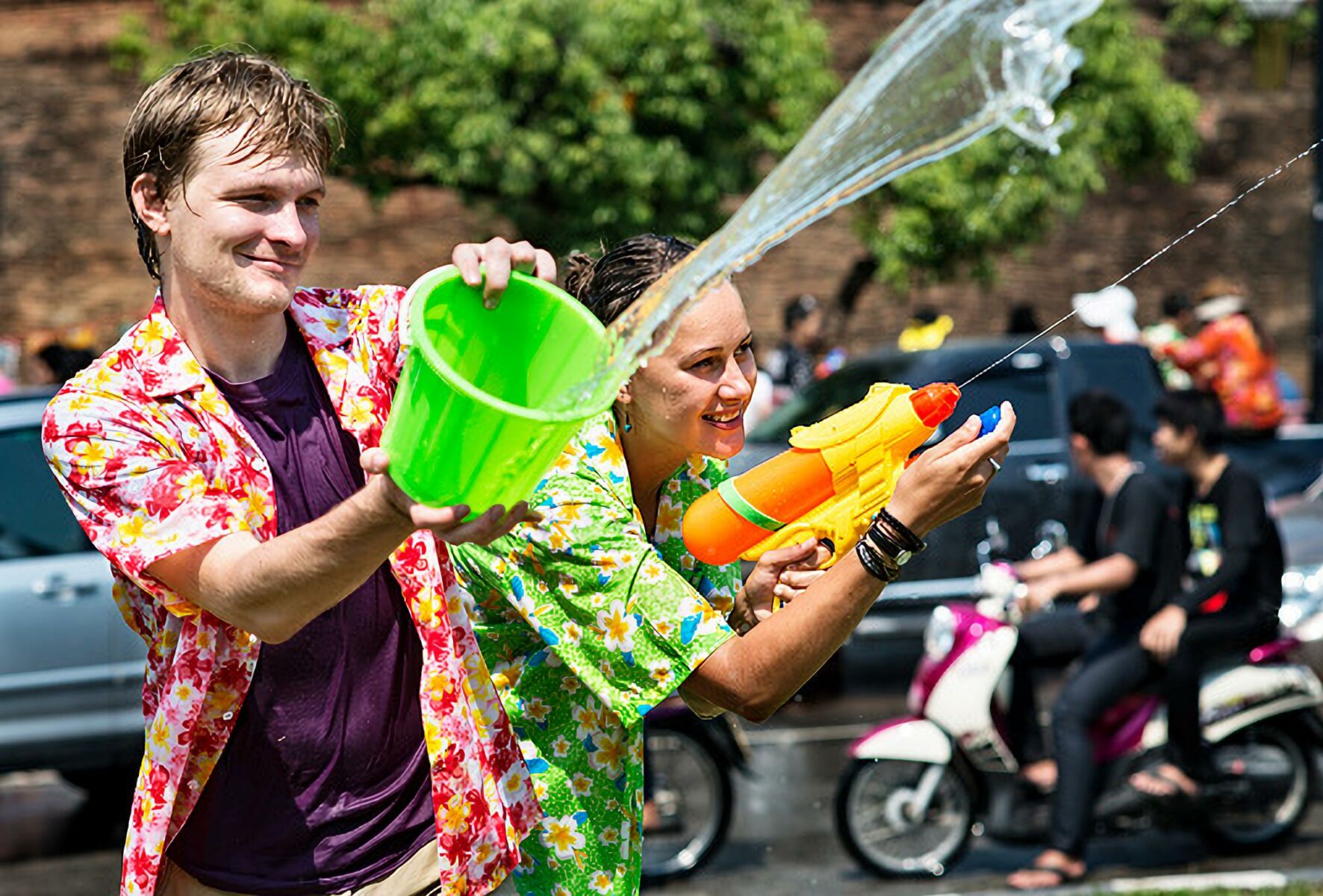
While honouring religious practices and family customs is an essential part of Songkran, the festive water battles are equally essential to the festivities! The water fights that take place during the festival are, without a doubt, the most entertaining part of Songkran.
Almost everywhere you go, you’ll find street parties featuring loud music and a giant friendly water fight. It’s a time when locals and tourists alike come together to celebrate, laugh, and make new friends.
With the hot sun beating down on Thailand in April, people collect water in buckets, water guns, and anything else they can find before hitting the streets to playfully splash each other. The air is full of the sound of laughter and splashing water, and it’s hard to resist the contagious energy and playful spirit of the festival.
Amidst the joyful chaos, people dance in the streets, ride in the back of pickup trucks armed with water buckets, and sing along to traditional Thai music – or any kind of music, really. The festival is a celebration of life, love, and renewal, and it’s easy to see why it’s such an important part of Thai culture.
Tips for celebrating Songkran
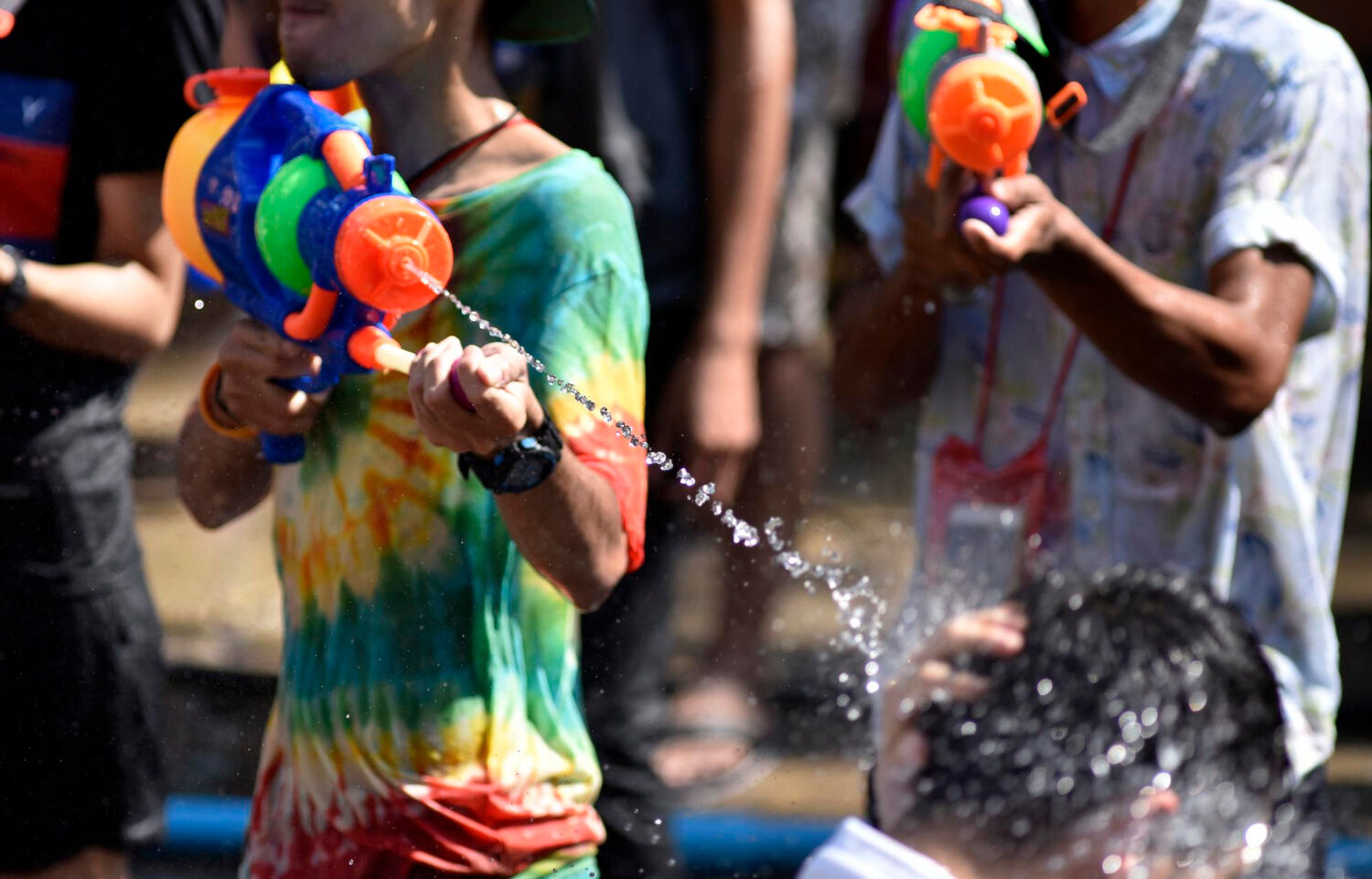
1. Dress in clothes that can get soaked
Make sure to wear comfortable and quick-drying clothes, as you will likely get drenched throughout the day.
2. Bring a waterproof bag or pouch to protect valuable
As water splashing is ubiquitous, it’s crucial to keep your electronics and important belongings safe from water damage. Invest in a good quality waterproof bag or pouch to ensure your phone, camera, cash, and other valuables remain secure.
3. Be respectful of local culture and customs
While Songkran is a time for fun and excitement, it’s essential to remember that it’s also a traditional Thai event with spiritual significance. Take the time to learn about the customs and traditions, and participate in them respectfully.
4. Honor and pay homage to Thailand’s rich cultural heritage
Participate in traditional activities, such as visiting temples, pouring water over Buddha statues, and offering food to monks, to show your appreciation for the country’s rich heritage.
5. Respect the elders and religious ceremonies during the festival
In Thai culture, Songkran is a time when families come together to pay respect to their elders and participate in religious ceremonies. Be mindful of your surroundings, and show respect to the elders by engaging in the traditional practice of pouring water over their hands as a sign of gratitude and reverence.
6. Avoid using ice-cold water during water fights
While not necessarily something to avoid at all costs, using ice-cold water can be uncomfortable and potentially harmful to others. Stick to using room-temperature water to ensure everyone can enjoy the festivities without any discomfort or health risks.
7. Embrace the lively spirit of Thai people and celebrate new beginnings
Songkran marks the beginning of the traditional Thai New Year, symbolising renewal and fresh starts. So even if you are not a Buddhist, Songkran is still an amazing opportunity to reset, and let go of the past.
8. Join in the fun and create lasting memories
Last but not least, take advantage of this once-in-a-lifetime experience by participating wholeheartedly in the festivities, making new friends, and creating unforgettable memories that you will cherish for years to come!
Where to celebrate Songkran
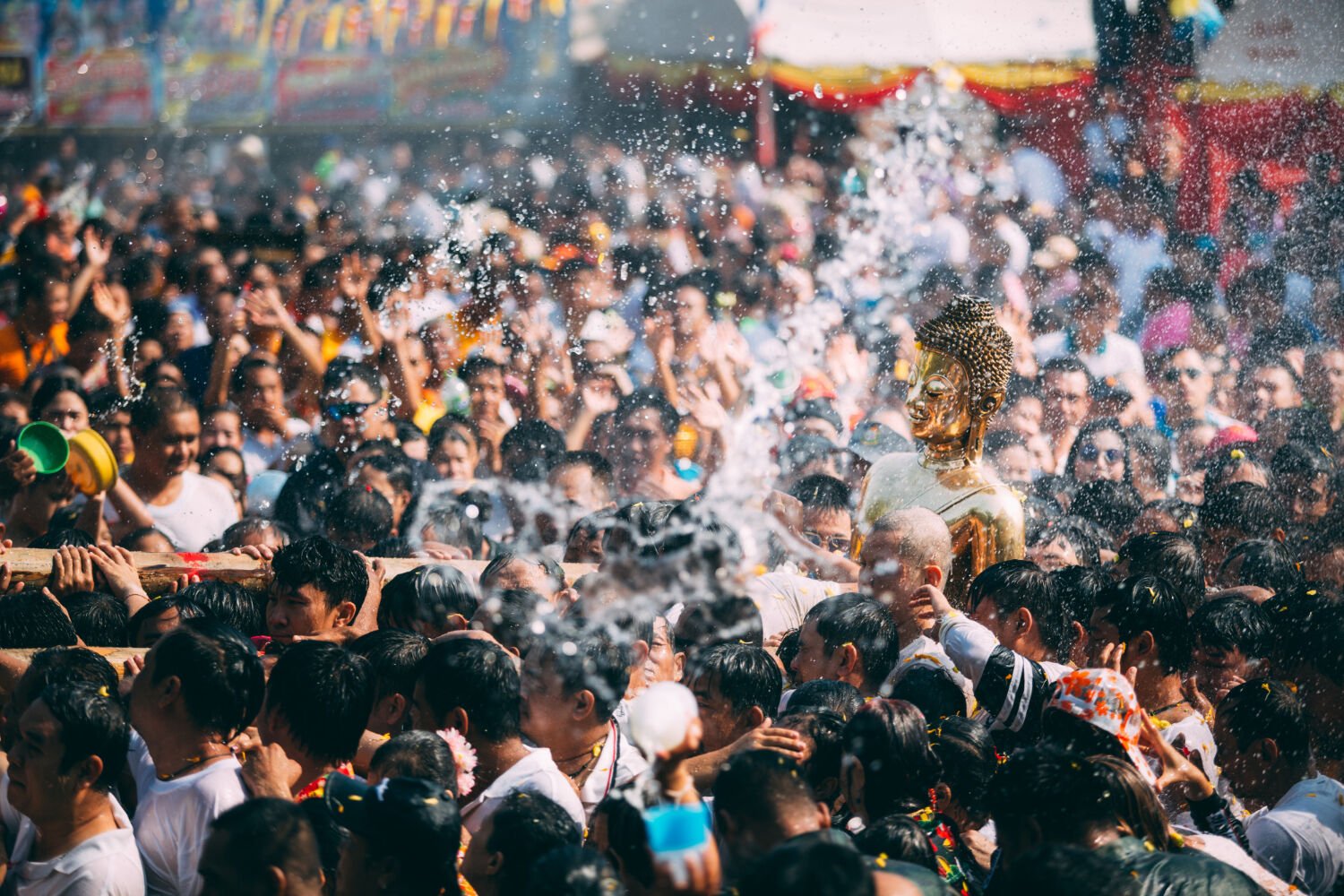
With Songkran predicted to make a grand return after three years of pandemic-induced lulls, Songkran came back in full swing last year in 2024. The ultimate destination for Songkran festivities still remains Bangkok, Chiang Mai, and Phuket.
In Bangkok, Khao San Road is a hub of water battles and street parties, while Silom Road is famous for its more traditional celebrations. Many music festivals and events often take place in the capital and you can always explore around and see what matches your vibe.
Chiang Mai, on the other hand, offers a more cultural experience, with locals and tourists alike flocking to the city’s many temples to pay their respects and bring offerings. Phuket, with its stunning beaches and lively nightlife, offers a unique blend of traditional and modern celebrations.
If you’re looking for a more laid-back atmosphere, consider visiting the northern province of Sukhothai, where people celebrate Songkran with a colourful parade and ancient traditions. Alternatively, head to the northeastern province of Khon Kaen, popular for its elaborate beauty pageants and cultural performances during the festival.
Wherever you choose to celebrate Songkran, make sure to immerse yourself in the local culture and customs, and always remember to stay safe and respectful.
Latest Thailand News
Follow The Thaiger on Google News:


























